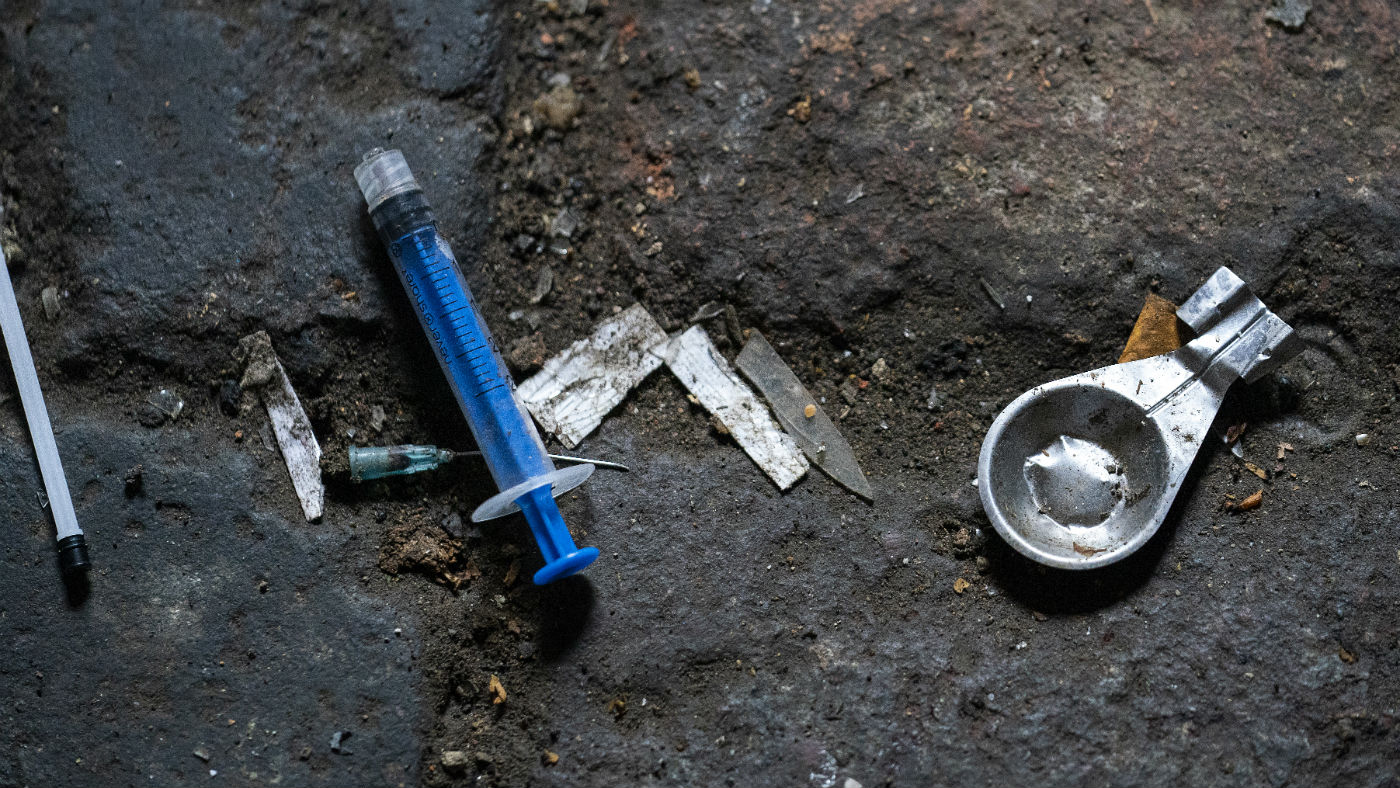How did Scotland become Europe’s drug deaths capital?
Poverty and mismanagement blamed as new data is revealed

A free daily email with the biggest news stories of the day – and the best features from TheWeek.com
You are now subscribed
Your newsletter sign-up was successful
Politicians in Scotland have said “heart-breaking” new drug death statistics are a “badge of shame” for Nicola Sturgeon.
Although the number of people who died of drug misuse last year dropped by nine to 1,330, Scotland continues to have “by far the highest drug death rate recorded by any country in Europe,” said the BBC.
Deaths up among women
The new data, from National Records for Scotland, showed that of those who died, 65% were aged between 35 and 54 and 70% were men. Drug-related deaths among women increased by 8.5% to 397 – a record high.
The Week
Escape your echo chamber. Get the facts behind the news, plus analysis from multiple perspectives.

Sign up for The Week's Free Newsletters
From our morning news briefing to a weekly Good News Newsletter, get the best of The Week delivered directly to your inbox.
From our morning news briefing to a weekly Good News Newsletter, get the best of The Week delivered directly to your inbox.
Over the five years to 2021, Dundee city had the highest death rate (45.2 per 100,000 population), followed by Glasgow city (44.4) and Inverclyde (35.7).
‘Utterly shameful’
Opposition parties blame cuts to drug rehab and addiction programmes by the Scottish government.
Scottish Conservatives leader Douglas Ross said the SNP government must “accept their current approach isn’t working”. Scottish Labour's drug policy spokesperson, Claire Baker, said the “utterly shameful” new figures showed the government was not making sufficient progress.
In June, a report found that Scotland’s addiction services have failed to achieve key targets that were set to reduce drug deaths. Nearly 60% of services did not give addicts the option to start treatment the same day they turned up. Writing for The National in 2020, Martin Powell, head of partnerships at the Transform Drug Policy Foundation, said that “just 40% those who need treatment are in it”.
A free daily email with the biggest news stories of the day – and the best features from TheWeek.com
Areport by Audit Scotland has urged ministers to provide more transparency about initiatives aimed at tackling the scourge of addiction in the country.
Root causes
Poverty has also been blamed. The new data showed that people in the most deprived areas were 15 times more likely to have died from drug use than those in the least deprived areas.
It is a familiar story: in 2019, Scottish Drugs Forum’s chief executive, David Liddell, declared that “poverty is the root of Scotland’s fatal drug overdose crisis”.
In a guest post for the Poverty Alliance, Liddell wrote that Scotland’s drug problem “has its roots in the harsh climate of 1980s deindustrialisation and the economic and social impact in the subsequent decades”. Addiction took hold because Scotland did not “chose a more interventionist approach by which the state created alternative employment and opportunity during these changes”, he argued.
First Minister Nicola Sturgeon has previously admitted that the number of deaths was “a national disgrace”. She acknowledged that her government had not done enough to tackle the problem.
Scotland’s drugs policy minister, Angela Constance, said the problem could be alleviated if the UK government stopped “criminalising some of the most marginalised and vulnerable individuals”.
Speaking to The Herald, Constance said the stats do not mean her “national mission” to tackle drugs deaths is having no meaningful impact. She called for the 1971 Misuse of Drugs Act to be overhauled so that Scotland could legally open safe consumption rooms.
-
 Health insurance: Premiums soar as ACA subsidies end
Health insurance: Premiums soar as ACA subsidies endFeature 1.4 million people have dropped coverage
-
 Anthropic: AI triggers the ‘SaaSpocalypse’
Anthropic: AI triggers the ‘SaaSpocalypse’Feature A grim reaper for software services?
-
 NIH director Bhattacharya tapped as acting CDC head
NIH director Bhattacharya tapped as acting CDC headSpeed Read Jay Bhattacharya, a critic of the CDC’s Covid-19 response, will now lead the Centers for Disease Control and Prevention
-
 Overdose prevention centres: do they work?
Overdose prevention centres: do they work?feature Despite rising drug deaths, UK has been unwilling to introduce places where people can take illegally purchased drugs in a supervised environment
-
 The mystery of the sanction-busting plane that flew from Inverness to Moscow
The mystery of the sanction-busting plane that flew from Inverness to MoscowIn the Spotlight Jet left Scottish airport after flights were banned between UK and Russia